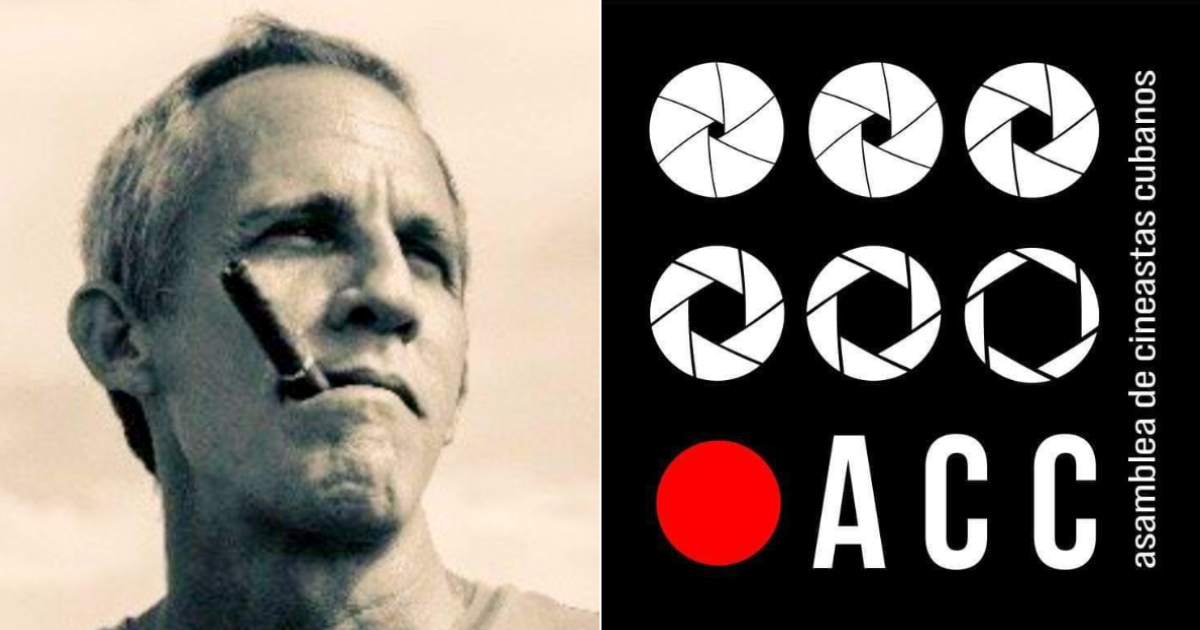The Assembly of Cuban Filmmakers (ACC) has condemned the punitive measures taken against Demian Rabilero del Castillo, the director of the Museum of Image, for screening a series of documentaries made by members of this organization.
A year after its establishment, the ACC once again finds itself at the epicenter of controversy and debate between the Cuban regime's cultural institutions and the artists and workers in the creative industry who strive to exercise their right to creative and expressive freedom.
The punishment of the director of the Bernabé Muñiz Guibernau Museum is seen as "a new act of censorship and exclusion carried out by the country's cultural authorities," the ACC stated in a press release.
Rabilero del Castillo was removed from his position for "violating the Constitution" and the regulations that, according to the totalitarian Cuban regime, should govern his work. For this "negligence" and citing Article 29.1 of Decree Law No. 13/2020, he was relieved of his duties.
The document detailing the administrative sanction was recently shared by Rabilero del Castillo himself. Among the reasons cited by the authorities of the Ministry of Culture (MINCULT), led by Alpidio Alonso Grau (dubbed "the slap minister"), is that the ACC is an "organization not recognized by the Cuban State that includes filmmakers who live on the Island and others who do not, but hold positions contrary to the Cuban Government."
"A year ago, the copyrights of another Cuban filmmaker were violated by these same authorities, causing outrage among nearly 700 creators who signed the declaration issued by the Assembly of Cuban Filmmakers concerning those events," the ACC recalled, referring to the censorship experienced by filmmaker Juan Pin Vilar and his documentary ‘La Habana de Fito,’ which led to a strong reaction from the artistic community and the formation of the organization.
For the ACC, the coercion exerted on Rabilero del Castillo is "just the tip of the iceberg." According to their statement, "members of our organization have been pressured in various ways."
"Nothing has changed since then; acts of censorship, exclusion, and institutional abuse continue," ACC members affirmed, criticizing the authorities for ignoring "the real underlying issues of Cuban cinema."
Given the blatant disregard of the authorities towards the ACC's concerns, its members declared that their "fight against dogmatism, exclusion, and institutional abuse remains steadfast."
"We reiterate the civic right of our community to work on the issues that concern us and to oppose a cultural policy that refuses to acknowledge the complexity of the Cuban reality and our right to reflect it from a critical perspective. At the same time, we express our full solidarity with Demián Rabilero," the ACC concluded.
Understanding the Censorship of Cuban Filmmakers
This section provides answers to some of the most frequently asked questions about the ongoing censorship issues faced by Cuban filmmakers, as highlighted by the recent incident involving Demian Rabilero del Castillo.
Who is Demian Rabilero del Castillo?
Demian Rabilero del Castillo is the director of the Museum of Image in Cuba, recently sanctioned for screening documentaries by members of the Assembly of Cuban Filmmakers.
What is the Assembly of Cuban Filmmakers (ACC)?
The Assembly of Cuban Filmmakers (ACC) is an organization that advocates for the creative and expressive freedom of artists and filmmakers in Cuba, often clashing with the regime's cultural institutions.
Why was Demian Rabilero del Castillo sanctioned?
He was sanctioned for "violating the Constitution" and failing to adhere to regulations set by the Cuban regime, specifically for organizing screenings of documentaries by ACC members.
What are the broader implications of this incident?
This incident is part of a larger pattern of censorship and institutional abuse faced by Cuban filmmakers and artists, highlighting ongoing struggles for creative and expressive freedom in Cuba.
